 International Cooperation
International Cooperation
The administration actively collaborates with the U.S. Environmental Protection Agency (EPA), ASEAN government agencies, academic institutions, and international organizations. Through professional training, forum exchanges, and technical seminars, we continuously strengthen Taiwan's environmental management capabilities. By aligning with the latest international trends, we aim to establish cross-border partnerships among government, industry, and academia, deepen international links, and jointly move toward the goal of global sustainable development.
New perspectives in environmental enforcement exchangeIn 1993, Taiwan's Environmental Protection Administration (predecessor of the Ministry of Environment) signed the "Environmental Protection Technical Cooperation Agreement between the Taipei Economic and Cultural Representative Office in the United States and the American Institute in Taiwan (U.S.-Taiwan Environmental Protection Cooperation Agreement)," entering into long-term collaboration with the U.S. EPA. Since 2014, the "International Environmental Partnership Program" has been promoted, gradually expanding the scope of cooperation to the Asian region.
Since 2013, "environmental law enforcement and compliance" has been one of the key cooperation projects. Regional national environmental law enforcement training programs for national environmental enforcement officers and seed instructors were held, inviting representatives from Indonesia, Thailand, the Philippines, Vietnam, and Singapore to Taiwan for training. "Environmental Law Enforcement Practical Training" courses were conducted by senior lawyers and inspectors from the U.S. EPA to enhance Taiwan's on-site inspection capabilities through simulated factory audits.
In 2014, personnel were sent to the U.S. EPA Region 9 for training, covering environmental law enforcement systems, case tracking, calculation of illegal gains, and environmental compensation programs. In 2015, Taiwan again participated in the "Environmental Enforcement Strategy Exchange" in the U.S. and visited the environmental law enforcement investigation center's forensics laboratory to gain insights into evidence collection and testing structures, providing a reference for Taiwan's law enforcement system.
In 2019, exchanges were conducted with the U.S. EPA headquarters and regional offices, covering air and water pollution law enforcement and environmental impact assessment monitoring. Visits to wastewater treatment plants and gas detection facilities provided exposure to VOC leak monitoring techniques. In the same year, Taiwan also hosted the "International Environmental Partnership Program – Vietnam Training Course" to share Taiwan's environmental regulations and law enforcement experience.
In 2015, the "New Generation Environmental Law Enforcement Symposium" was held in Bangkok, Thailand, with participation from 16 government agencies, international organizations, and civil experts and scholars. The symposium addressed challenges such as inadequate inspection capacity, incomplete regulations, and low public environmental protection awareness. In the same year, exchanges were also held with the South Coast Air Quality Management District of California and the U.S. EPA Region 9 on air pollution inspection and case experience.
Through these collaborations, Taiwan's environmental inspectors not only improved their professional skills but also gained insight into international law enforcement trends, laying a solid foundation for future environmental law enforcement work.
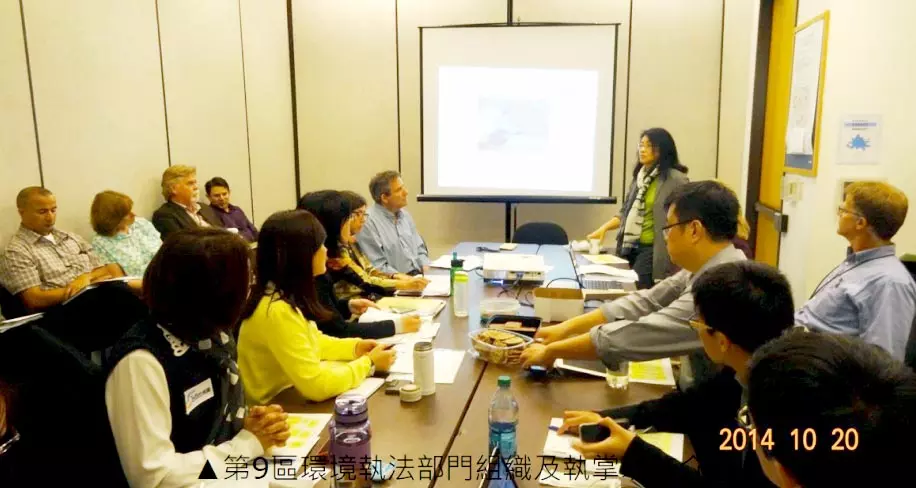
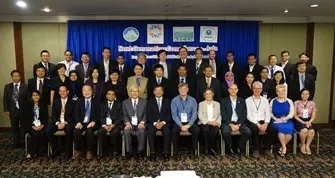
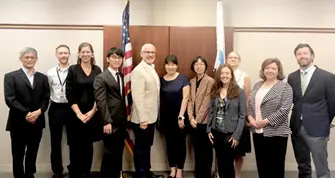
In accordance with the implementation guidelines of the U.S.-Taiwan Environmental Protection Cooperation Agreement, the administration has partnered with the U.S. EPA to enhance Taiwan's technical capabilities in remediating contaminated soil and groundwater sites. This includes the development, selection, design, use, and monitoring of various on-site remediation techniques to comply with regulations and achieve environmental goals in contaminated site management.
Recent collaborative achievements include the co-hosting of hybrid in-person and online international workshops including the "International Workshop on New Trends in Site Investigation and Remediation" in 2021, "International Workshop on Advanced Modeling, Characterization, and Remediation Techniques for Contaminated Sites" in 2022, and "2024 U.S.-Taiwan Soil and Groundwater Technique Exchange Workshop – Emerging Contaminants and Remediation Practices." These events attracted over 150 experts from industry, government, and academia, enhancing technical skills and improving the success rate of achieving remediation goals.
In March 2025, the "ASEAN Regional Forum on Soil and Groundwater Challenges and Sustainable Management Strategies" was held, with official representatives and scholars from countries such as Thailand and Vietnam in attendance. A research competition awards ceremony was also conducted to encourage the integration of academic research and practical application, deepening opportunities for collaboration between Taiwan and ASEAN countries in pollution remediation.
By continually hosting international workshops, forums, and collaborative exchanges, Taiwan not only aligns with international standards but also gradually establishes bilateral and multilateral partnerships, advancing industry-government-academia collaboration toward the goal of sustainable soil and groundwater management.
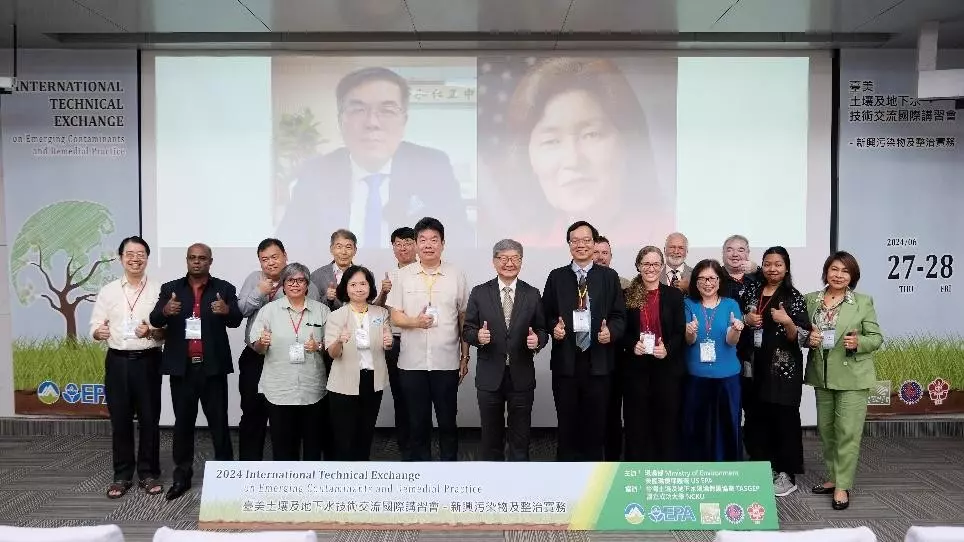
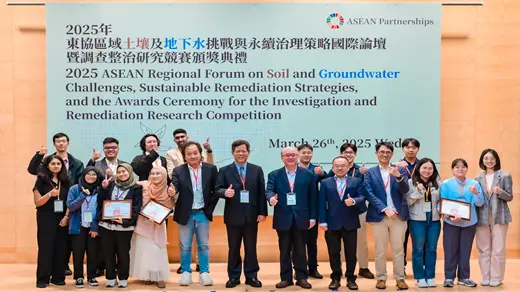
Through international cooperation, the administration has established strong partnerships with environmental agencies worldwide, accumulated valuable experience and resources, and applied the latest technologies to Taiwan's environmental management. Moving forward, the administration will continue to improve and deepen international collaboration, contributing to environmental sustainability in Taiwan and abroad.
- Data Source: Division of General Planning
- Publish Date: 2024-10-07
- Update Date: 2025-12-18




